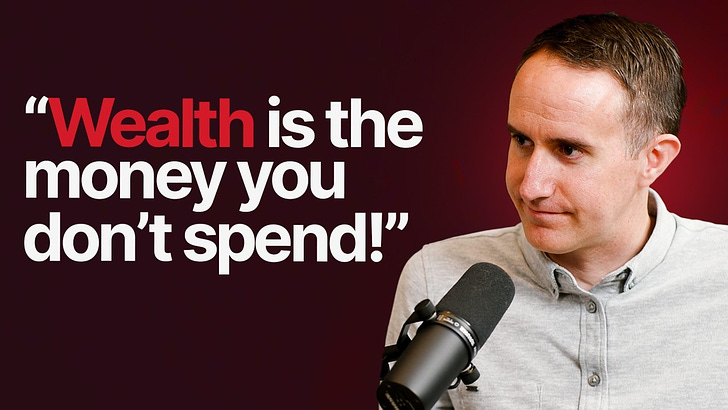Most of us tend to define wealth as that money stashed in your bank account, which you can spend any time on anything.
Maybe not. There has to be a better perspective!
And who else but the money psychology expert, i.e. Morgan Housel to guide us on this.
Wealth is the money that you don’t spend: Morgan Housel
In a thought-provoking discussion between Morgan Housel and Shane Parrish, the two discuss some of the key financial principles and investment strategies, emphasizing the importance of independence and the distinction between being rich and wealthy.
The hardest part of investing is defining the game that you’re playing
Here are the most important atomic ideas from the 1.5 hrs long conversation.
The Crucial Financial Skill: Avoiding FOMO
Not having FOMO (Fear of Missing Out) is identified as the single most important financial skill. Being immune to FOMO allows for better long-term decision-making and wealth accumulation. The ability to ignore short-term trends and the success of others helps in maintaining a steady investment course and achieving significant financial growth over a lifetime.
"If there’s one trait that’s going to allow you to accumulate wealth, it’s the lack of FOMO."
The Difference Between Rich and Wealthy
Being rich means having enough money to cover expenses like mortgage and credit card bills.
In contrast, being wealthy signifies a degree of independence and autonomy, where money is not just for spending but also for securing freedom. v
Wealth is the money that is saved and invested, not spent, allowing for future financial security and independence.
"Wealth is the money that you don’t spend."
The Impact of Luck and Timing
Luck plays a significant role in financial success, often overlooked. Factors like where and when one is born are uncontrollable yet have a massive impact on life outcomes.
Keep reading with a 7-day free trial
Subscribe to NBW: Startups, AI and Audiobooks to keep reading this post and get 7 days of free access to the full post archives.




